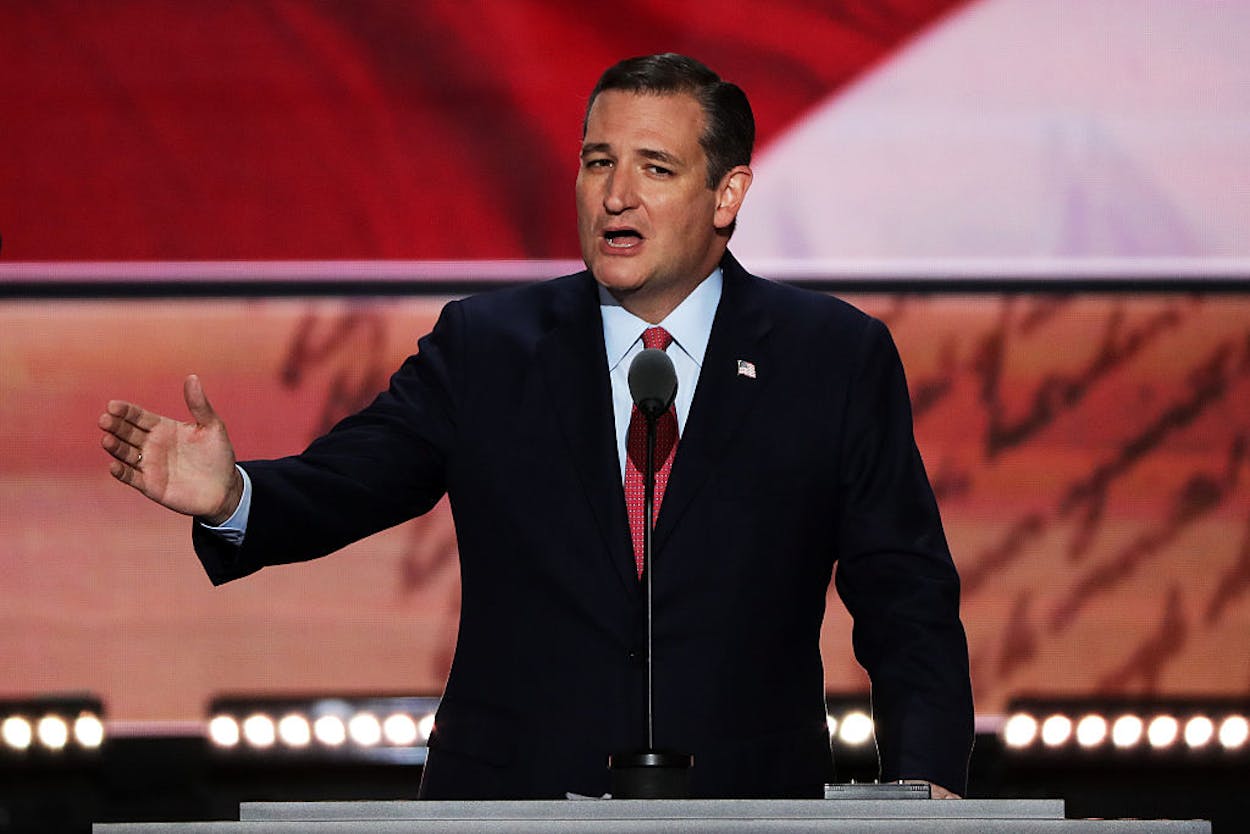Now that the craziest presidential election of our lifetimes is over, Texas political observers can turn their attention to the next big race: Ted Cruz’s attempt to retain his Senate seat. Cruz, an already divisive figure, took a series of hits during the campaign thanks to his on-again, off-again, on-again embrace of Donald Trump. In Texas in particular, many Republicans were angry that he failed to endorse Trump at the Republican National Convention. Things have gotten bad enough that people are now speculating that Cruz may have a serious primary fight in his 2018 Senate contest.
How can Cruz avoid that? We asked veteran Republican consultant Matt Mackowiak, president of the Potomac Strategy Group, to offer some advice to the embattled pol.
Cruz begins any primary challenge with significant advantages: universal name ID, the power of incumbency, a record so conservative that there is literally no room to his right, and massive fund-raising lists. He does, though, have three potential vulnerabilities: the perception that he ran for the Senate to run for president (and will again), that he selfishly hurt Trump, and that he is ineffective in Washington.
Cruz needs to address these weaknesses by working to produce achievements in Congress. His perch on the Senate Commerce Committee offers broad regulatory potential and his seat on the Senate Judiciary Committee gives him an opportunity to pass bipartisan border security legislation.
He must also repair broken relationships on Capitol Hill. To that end, he recently transferred $100,000 from his own campaign fund to help elect Republicans to the Senate, and in October he co-hosted major fundraisers for Senate colleagues.
Cruz must also begin raising money immediately and aggressively; strengthen his statewide organization, which hasn’t been fully mobilized since 2012; and convince his most ardent critics—major GOP donors in Texas—that he will work assiduously for the state’s economic and constituent interests and listen more closely to their concerns.
As for potential challengers, all eyes are on Congressman Michael McCaul, who looks good on paper: he’s a recognized leader on national security and border security, he has achievements he can sell, and his district includes the Austin and Houston media markets.
McCaul may ultimately pass, because he likely doesn’t want to give up his safe congressional seat or his valuable Homeland Security Committee chairmanship. The price to run is high.
Cruz needs to remind him, and any other circling vultures, exactly how high.
- More About:
- Politics & Policy
- Ted Cruz







